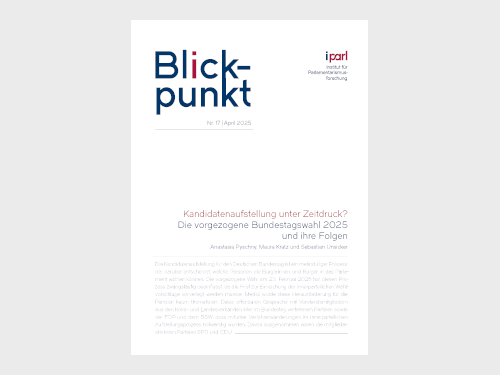
Due to the early election of the German Bundestag, intra-party candidate selection also needed to be held earlier than planned. As Anastasia Pyschny, Maura Kratz and Sebastian Unsicker point out in the 17th IParl-Blickpunkt, this had consequences for the process of nominating candidates. In almost all parties, procedural changes were necessary in the internal party nomination process.
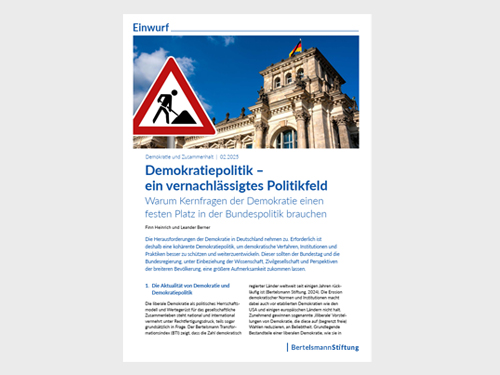
Is it time for a more ambitious democracy policy and, if so, what could it look like? This was the key question of the Bertelsmann Roundtable with representatives from politics, administration, civil society and academia. Danny Schindler represented the IParl.

Communication is both a key task and a complex challenge for political parties. Danny Schindler spoke to the ZDF programme "Berlin direkt" about the tension between election campaign rhetoric and finding compromises in coalition negotiations.
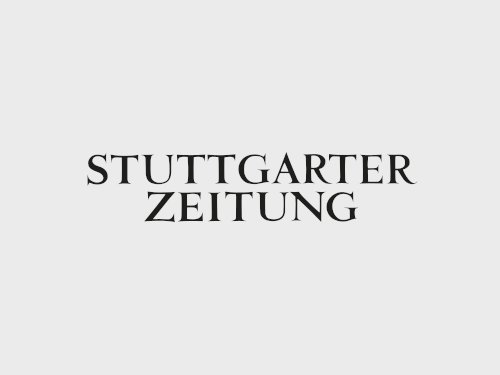
The AfD not has almost a quarter of seats in the new Bundestag. What impact will this have on the composition of parliamentary committees? Danny Schindler spoke about this in an interview with Stuttgarter Nachrichten.

For the Politikum podcast by WDR5 Danny Schindler explained why political leadership and the ability to compromise on a daily basis are needed for coalition talks. Extensive coalition agreements on the other hand are not necessarily needed.
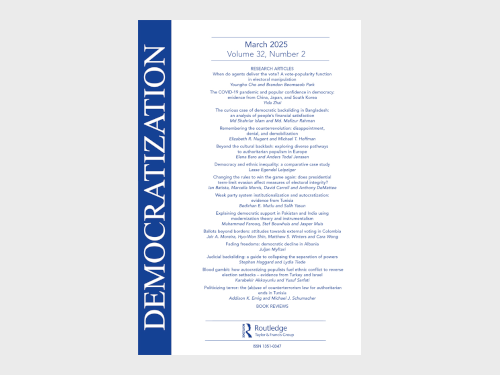
The recall of MPs during the election period, as permitted by the Recall of MPs Act in the UK, is seen by some as a democratic correction mechanism. However, it can also be used as an instrument to weaken the opposition, as Danny Schindler's case study on Zimbabwe shows.

As the second chamber, the German Bundesrat represents the interests of the federal states and has considerable influence on federal legislation. But how exactly does the interaction between the federal and state levels work - and what characterises the Bundesrat as a special second chamber? In this episode, Franziska Carstensen, research associate at IParl and visiting professor at HWR Berlin, and Albert Funk, journalist and long-time observer of the Bundesrat, discuss the historical development, institutional categorisation and political dynamics of the Bundesrat. The focus will be on the origins of the Bundesrat, its influence on the legislative process and the extent to which the Bundesrat should be seen as a power factor or as a mere mediator between the federal and state governments.

What will happen after the early general election and which changes to the party system are to be expected? Danny Schindler spoke about these questions with the morning programme of SWR Kultur.

Traditionally, governments in France can rely on stabl majorities in parliament. Since 2022, however, a minority government is in office. Damien Lecomte and Calixte Bloquet trace the institutional and political developments of the last 20 years to explain this new phenomenon. Although this new political situation has placed parliament more at the centre of politics, it has not contributed to a stronger consensus orientation in the Assemblée nationale.
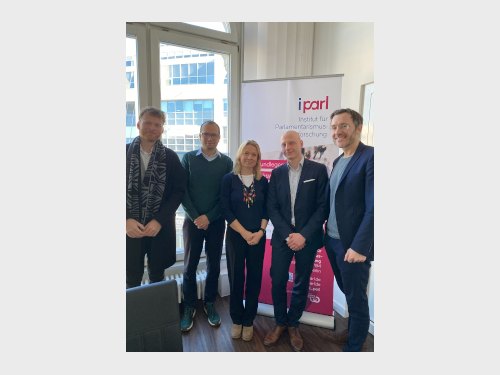
The Bundestag elections on 23 February will be observed by an OSCE/ODIHR team of experts. In this context, discussions will also be held with experts from academia and civil society. Danny Schindler and Daniel Hellmann gave their assessments of the electoral reform, the scrutiny system and the general organisation of the election and discussed possible suggestions for improvement with the OSCE/ODIHR team of experts.
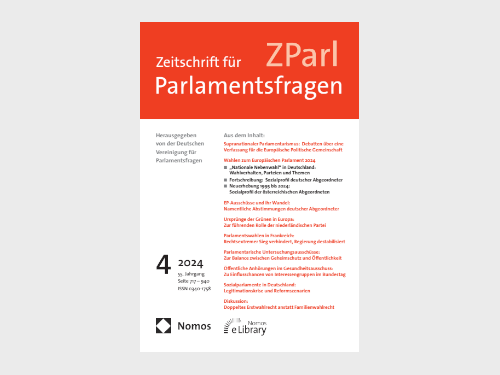
After the far-right Rassemblement National emerged as the clear winner of the election for the European Parliament on 9 June 2024, President Emmanuel Macron dissolved the National Assembly. Anastasia Pyschny and Calixte Bloquet show that the outcome of the second round of voting has far-reaching consequences for the French political system.
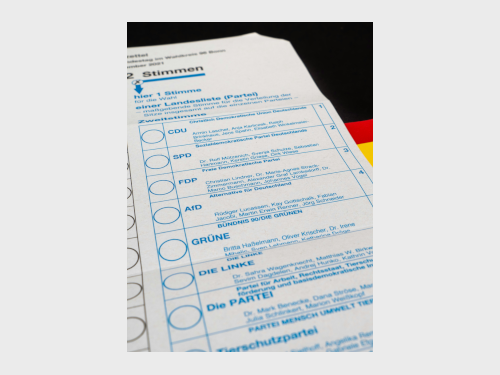
It may seem trivial to ask how ones' name actually gets on the ballot. The simple answer: you run for mandate. But how does this actually work and who decides who is allowed to stand and who is not? Daniel Hellmann answers these questions on the pw-portal.
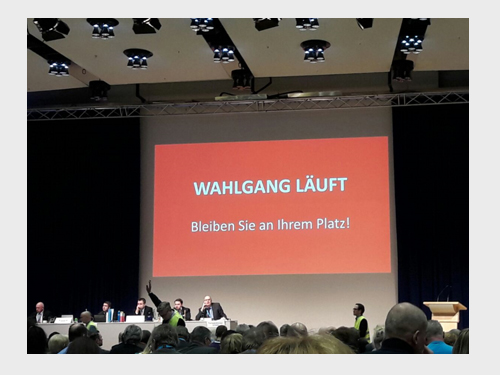
What role does physical appearance play in the intraparty personnel recruitment? Calixte Bloquet and Danny Schindler investigated this question with the help of a party member survey.
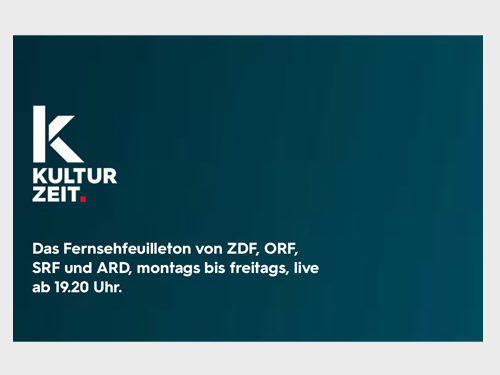
Do we need more newcomers in the Bundestag who are supported by political companies outside the parties? Hardly, if you look at the selection procedures and renewal rates in the parties. Danny Schindler contributed his sceptical view to the 3Sat programme Kulturzeit.
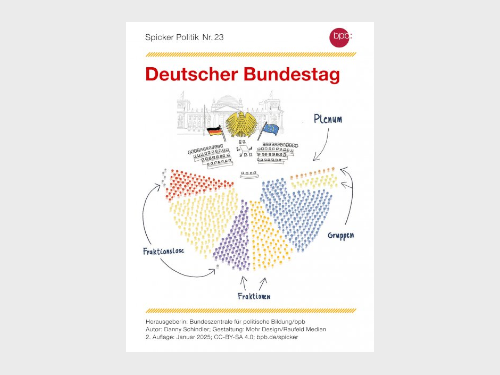
All the important information on fundamental topics from politics and society on one A4 page. This is the "Spicker" from the Federal Agency for Civic Education. Issue no. 23 on the German Bundestag by Danny Schindler is now available in an updated version. In it, among other things: Why can the Bundestag also be called a parliamentary group?

Following the break-up of the governing coalition, an early election to the German Bundestag will take place on 23 February 2025. Daniel Hellmann explains in the podcast "What's going on? On politics and society" by the Brandenburg State Centre for Political Education, Daniel Hellmann explains the challenges associated with the early election and the consequences of the electoral law reform of 2023 for the Bundestag election and the composition of the future Bundestag.
Sign up to receive updates, promotions, and sneak peaks of upcoming products. Plus 20% off your next order.